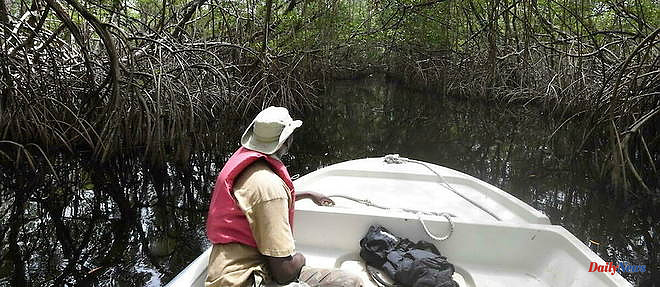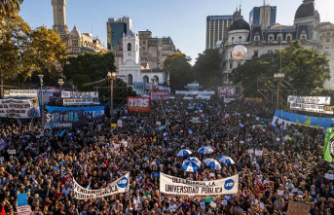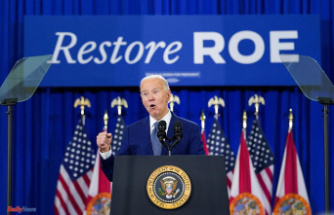In Ghana, coastal erosion is officially recognized as a national environmental issue. A quarter of the West African country's 31 million people live on the coastline, which stretches nearly 550 kilometers. One ecosystem is unanimously recognized for its role against coastal erosion: the mangrove.
East of the Ghanaian capital, Accra sits at the mouth of the Volta River. The waters of the Atlantic Ocean meet those of the river and practically encircle certain plots of land. Further north, the largest artificial lake in the world covers approximately 8,500 km2. A few years ago, a small village not far from the mouth made the news: engulfed by the waters, it recalled the vulnerability of the Keta lagoon and the eastern Ghanaian coasts to coastal erosion, a natural phenomenon which is accelerating with the rise in sea level, a consequence of global warming.
People are the first victims: "They lose their homes, but also their main sources of income", explains Kwasi Appeaning-Addo, director of the Institute of Environmental Studies and Sanitation at the University of Ghana. The results of his research by comparing satellite images show that between 2005 and 2017, 37% of Ghana's coastal land was lost due to erosion and flooding. Both fishing and tourist activities are threatened. According to Unesco, some historic forts have also been degraded by the rising waters.
Near the mouth of the Volta, in Ada-Foah, Noah is a tourist guide. He maneuvers his canoe in the narrow streams that separate small islands of vegetation. On board is a group of a few tourists who have come to observe a very special forest: a mangrove. The trees that make up this ecosystem are mangroves. Recognizable by their long roots sticking out of the water, they are still numerous in Ada-Foah.
The scientific community recognizes a crucial role of mangroves against the ongoing climate transformations: "They protect the coastline against storms and reduce the intensity of strong erosive waves", explains Professor Addo. They also store large amounts of carbon. However, their numbers are declining globally such as in Ghana. Their use by coastal populations is far from being the only cause: the construction of infrastructure on the coast often implies their disappearance.
A particular scourge accelerating erosion is noted by John Manyimadin Kusimi, associate professor of the Harvard University research project on the adaptation of the Gulf of Guinea to climate change. “Along the coast, a lot of sand is mined by people working in the building and construction industry. It is an illegal activity,” he explains. The concentration of industrial activities on the Ghanaian coasts explains the intensive exploitation of the natural resources of the coast.
To the west of Accra, tourist establishments line the coast. Most of them have installed large stones that separate the infrastructure from the beach, hoping to slow erosion. Professor Kusimi agrees: “Rock alignment itself can minimize erosion. »












